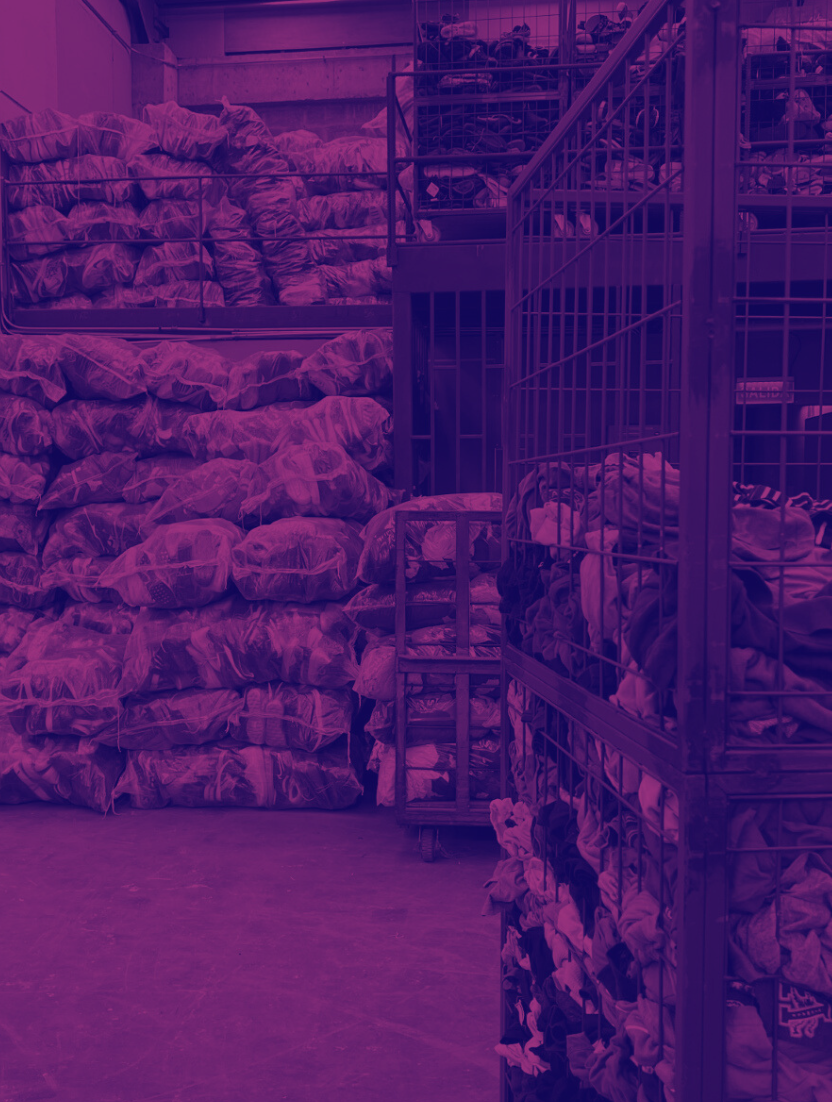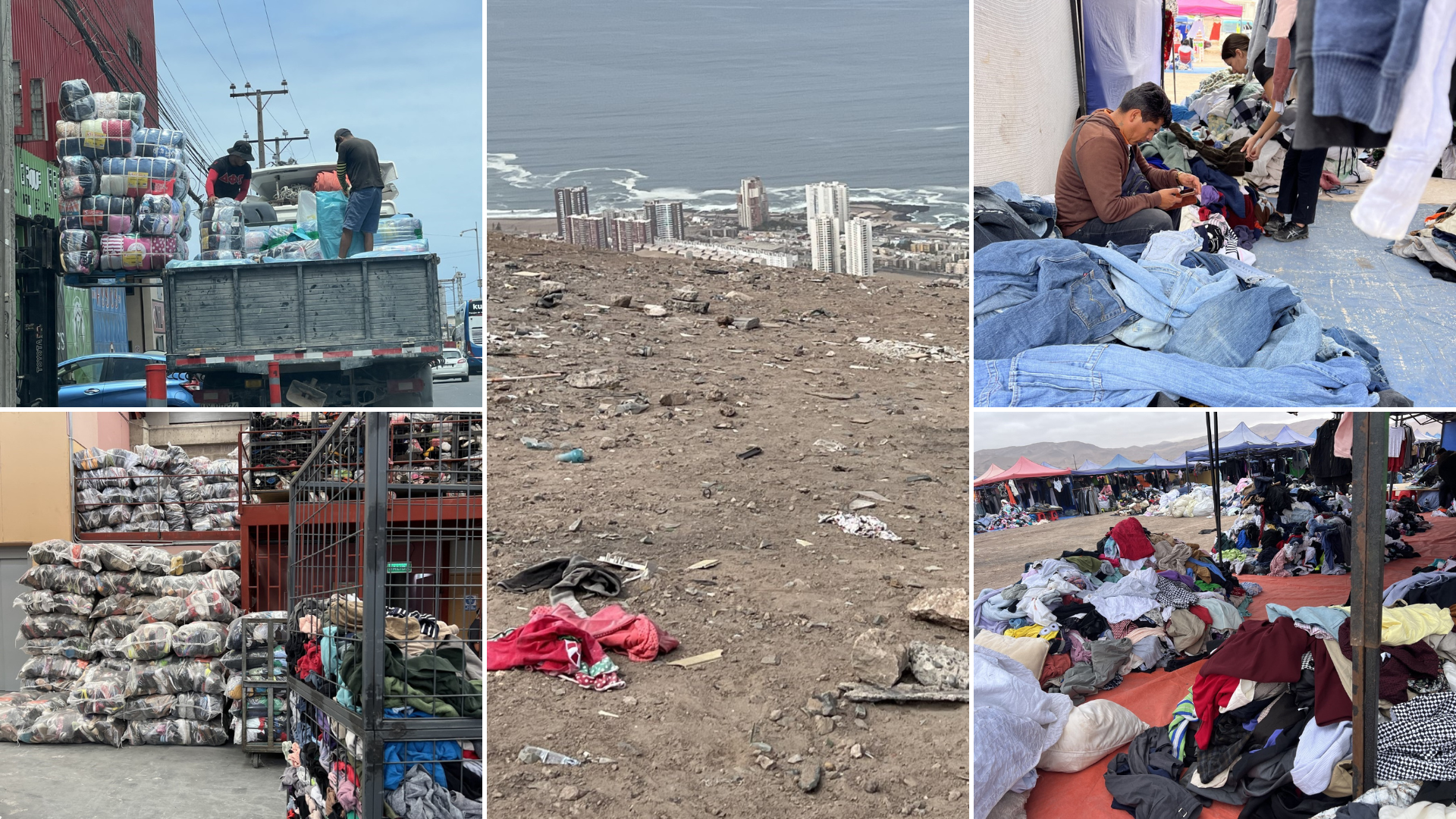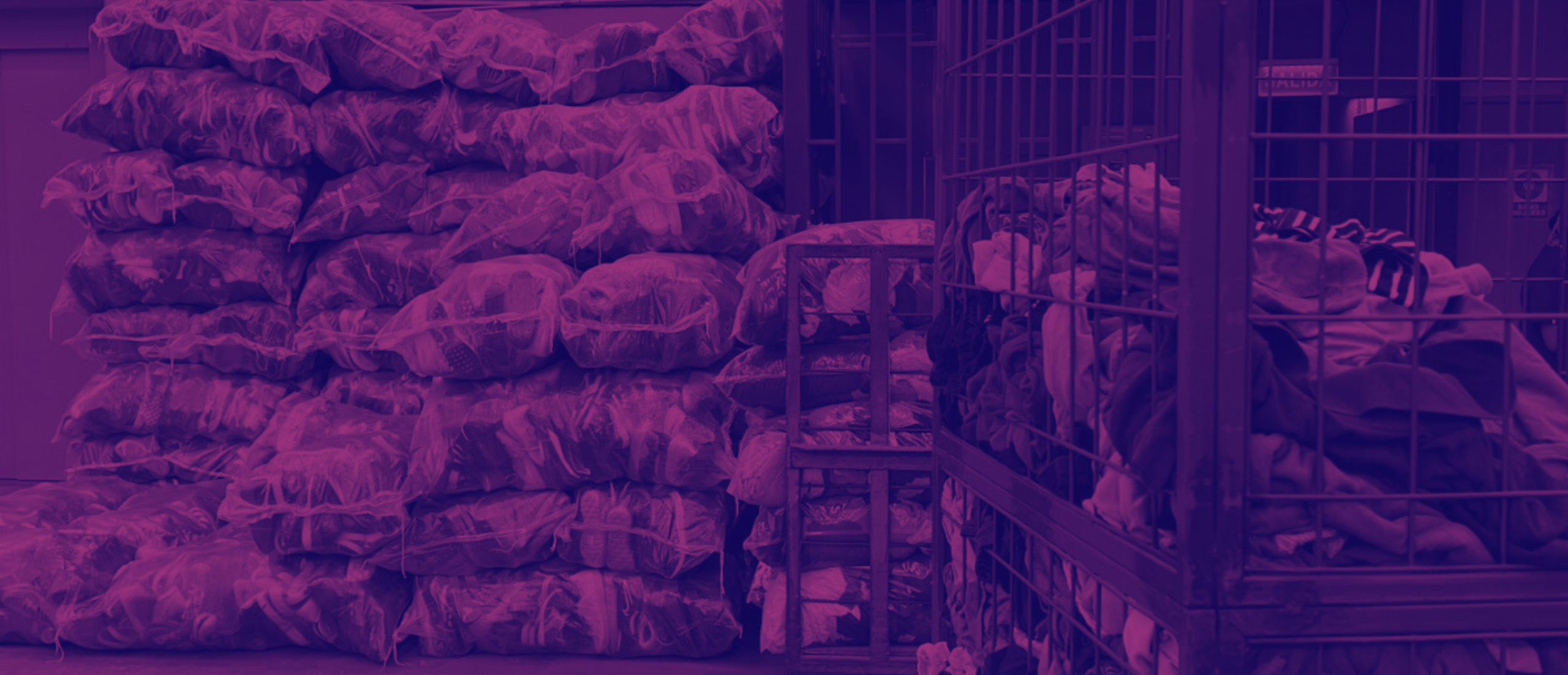
Insights from Iquique: The Critical Need for Transparency
Executive Summary
- Iquique, Chile faces a growing crisis of textile waste, with unsellable secondhand clothing piling up in deserts and landfills—revealing the hidden consequences of global overproduction and a lack of transparency.
- The issue is deeply complex: while environmentally damaging, the secondhand trade also sustains local economies and provides affordable clothing to underserved communities.
- Debrand is committed to global responsibility, using on-the-ground insights from this visit to inform more ethical, traceable, and community-conscious solutions for post-consumer and post-industrial clothing.
Confronting the Consequences of Textile Waste
Every Earth Month brings an opportunity to reflect on the true impact of the fashion industry—and the systems we’ve come to accept as “sustainable.” This year, Debrand is closing out Earth Month by sharing a deeper look at the global secondhand crisis unfolding in Iquique, Chile, a city that has become a stark illustration of what happens when overproduction and underregulation collide.
Earlier this year, Amelia Eleiter, CEO of Debrand, travelled to Iquique with Constanza Gomez, the founder of circular fashion platform Sortile and who is also originally from Chile. Together, they witnessed the visible toll that secondhand clothing exports—many of them originating from the Global North—are having on the environment and communities in the region.

“At Debrand, we recognize that the apparel industry has a global reach and the work we do regionally impacts communities around the world, so our solutions have to be responsible, inclusive and transparent. Sortation can help provide that transparency.”
— Amelia Eleiter, CEO & Co-Founder of Debrand
Iquique, Chile: An Unintended Landfill for the Global Fashion Industry
Iquique, located in Chile’s far north, functions as a free trade zone where imported secondhand clothing enters tariff-free. In theory, this system supports a resale economy. In practice, it has made Iquique a dumping ground for garments that are often too damaged, dirty, or unsellable to begin with.
Key facts about the crisis:
- It is estimated that at least 60,000 tons of secondhand clothing are imported into Chile each year, much of it entering through Iquique.
- Much of the clothing imported is discarded, the majority of it being dumped and incinerated in the Atacama Desert, near Iquique.
- The clothing dumped in the Atacama Desert is synthetic and will take centuries to biodegrade, while the clothing that is burned impacts the health of neighbouring communities and the environment.
While secondhand clothing is often seen as a sustainable alternative to landfill or incineration in originating countries, the oversupply of low-value and unsellable garments in places like Iquique reveals a global imbalance: waste is simply being shifted elsewhere.

An aerial view of used clothes discarded in the Atacama Desert, in Alto Hospicio. PHOTOGRAPH: MARTIN BERNETTI/GETTY IMAGES
The Human Side of the Secondhand System
Constanza stresses that while the environmental impact is stark, the situation in Iquique cannot be understood in black and white terms. The secondhand clothing trade also supports local economies and livelihoods in the region.
From importers and warehouse workers to market sellers and local shoppers, many people in Iquique and surrounding communities rely on this system for their survival. Informal markets and formal resale shops alike create accessible income opportunities for economically vulnerable populations. For many, these imported goods are not just affordable alternatives—they are the only clothing options within reach.

PHOTOGRAPH: FERNANDO ALARCÓN/GRIST
“People want this issue to be black and white, but it’s not. On one side, there’s the environmental harm—images of burning piles of clothing in the desert that make it seem like no one in this region cares. On the other, there’s the reality that this system supports thousands of jobs and gives people access to clothing they otherwise couldn’t afford. Both things are true at the same time. If we want to improve the system, we have to hold space for that complexity.”
— Constanza Gomez, Co-Founder of Sortile
This presents a significant ethical complexity: disrupting the system without addressing these social and economic dependencies could do more harm than good. Without the Free Trade Zone and its constant influx of secondhand goods, many individuals would be left with little to no source of income—or access to affordable clothing.
Any efforts to improve this system must start from a place of empathy and inclusion, recognizing the value it brings to people’s lives, even as it creates harm in other ways.

PHOTOGRAPH: MURIEL ALACÓN
Why Secondhand Isn’t Always a Sustainable Solution
The Iquique crisis challenges a commonly held belief in the fashion industry: that resale and donation are inherently positive end-of-life solutions. In reality, without infrastructure, oversight, and intentional sorting, secondhand exports can cause significant harm—especially when social systems are left to bear the burden.
What’s needed is not an immediate shutdown of secondhand flows, but a more balanced, transparent, and collaborative approach. Solutions must center the voices of local communities, ensure imports are in usable condition, and offer pathways for circularity that benefit—not burden—the regions receiving these goods.

PHOTOGRAPH: FERNANDO ALARCÓN/GRIST
What the Industry Can Learn from Iquique
Iquique underscores a need for systemic change in how the fashion industry handles surplus and end-of-life inventory. It’s not enough to shift the destination of unwanted goods—brands need to rethink their role in the lifecycle of their products.
Some key takeaways:
- Overproduction is a root cause. Brands need to scale production to actual demand and rethink discount-driven models.
- Donation should not be a default. It must be a considered choice, with clear understanding of the receiving market’s capacity.
- Traceability and transparency in post-consumer and post-industrial clothing flows are essential for responsible disposal and reuse.
- Investment in ethical, scalable next-life solutions is crucial—from local reuse and repair to textile-to-textile recycling.

PHOTOGRAPH: MARTIN BERNETTI/AFP/GETTY IMAGES
A Shared Responsibility
Debrand’s work focuses on building infrastructure to ensure garments are sorted, tracked, and sent to vetted reuse, recycling, or responsible disposal partners. Our goal is to help brands make informed, measurable decisions about the next life of their products—domestically and internationally.
However, Iquique reminds us that no single organization can solve this crisis alone. Brands, policymakers, sorters, recyclers, and consumers all have a role to play in creating a more just and supportive ecosystem—one that includes and supports the communities most affected.

PHOTOGRAPH: CHENG HWA/GRIST
Moving Forward: Earth Month as a Commitment, Not a Campaign
We invite our partners—and the broader apparel industry—to look beyond traditional metrics of sustainability. It’s not just about how much we reuse or recycle. It’s about whether we are shifting harm elsewhere in the process, and whether our solutions account for the human realities on the ground.
Iquique is a powerful reminder that our decisions have ripple effects. And that circularity without accountability—or community inclusion—is just displacement.
